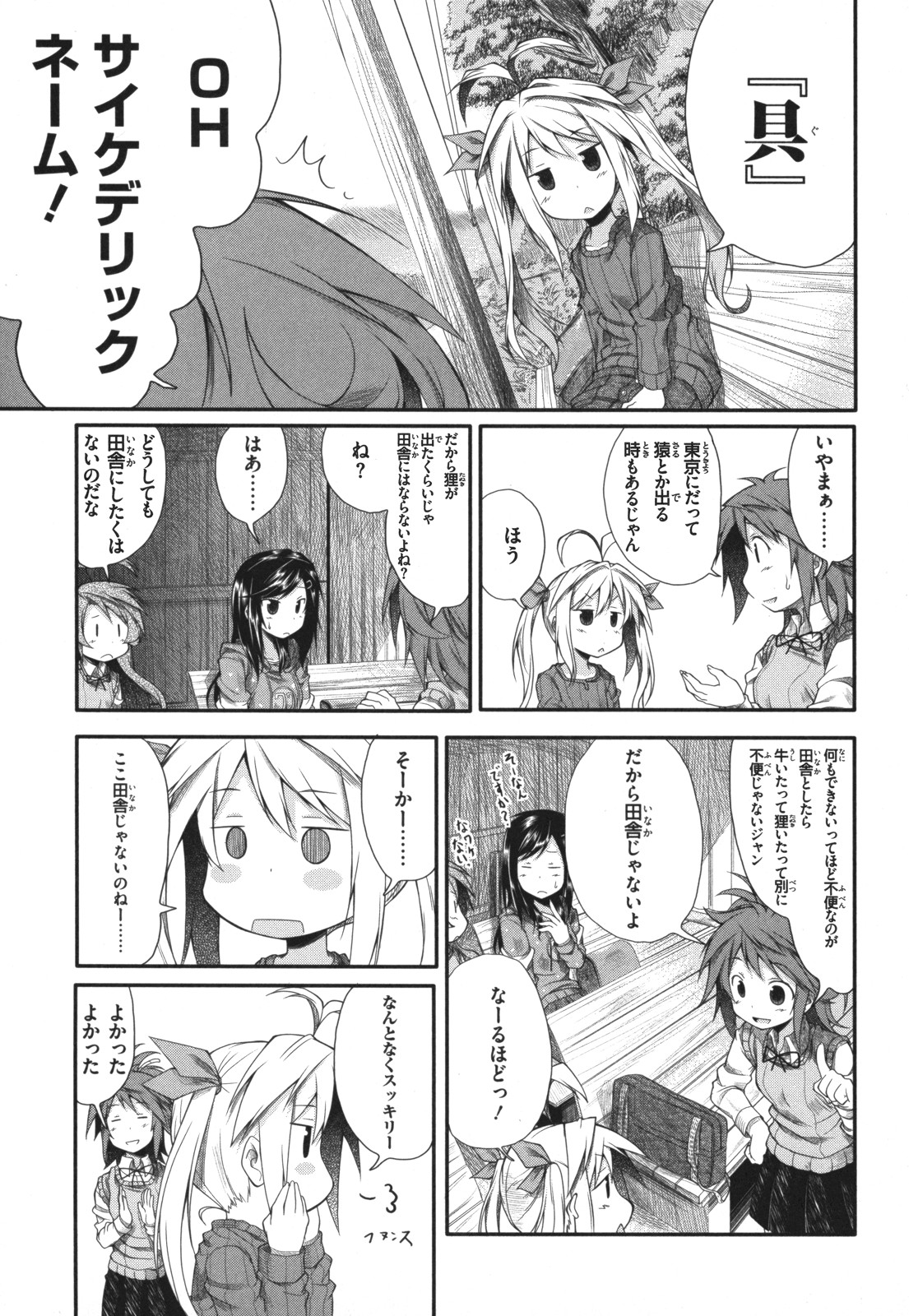This is from a scene in volume 1 of Non Non Biyori. During the chapter, Renge is concerned that "we might live in the countryside" (田舎) and lists several evidences of it.
Renge mentions owning a tanuki/raccoon dog and having named it "具", to which Natsumi responds with surprise. She says it's a "サイケデリック" name.
It seems to carry a positive meaning, and I was wondering if it's slang. I tried to do a quick search online for other sentences in Japanese containing this word, but I couldn't find any in which the term isn't used literally.
Any ideas on what this means in context?


